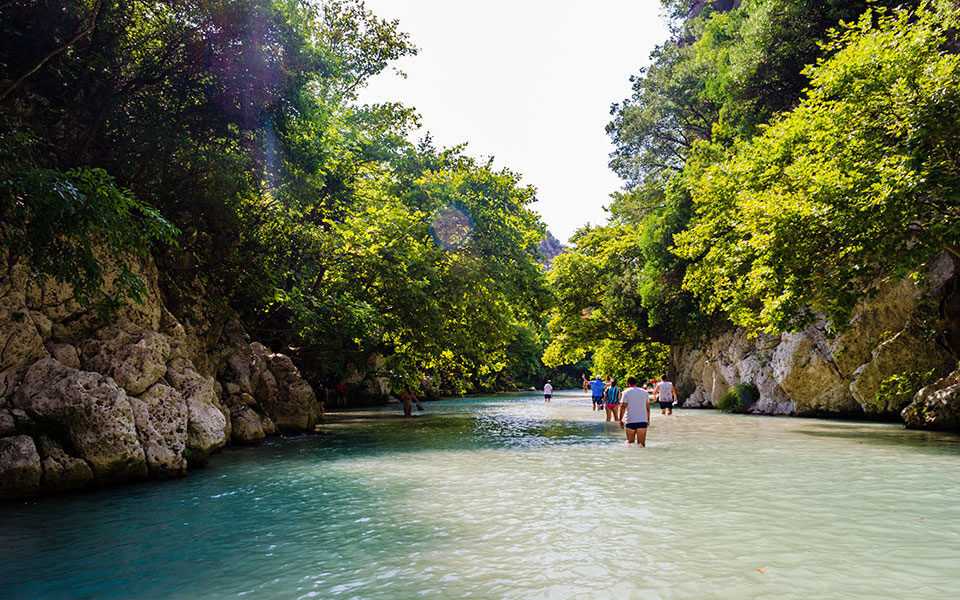In the beginning of time, when gods and monsters roamed the earth, the Titans fought the Olympians for control of the Universe. During the ten-year battle, the Titans gained strength by drinking from the Acheron River. Enraged, Zeus cursed the river which, according to Greek mythology, was the gateway to the underworld.
This is only one of the origin stories of the river. In fact, the 52 km-long Acheron River in Epirus, northwest Greece, is far more than the fame it had in mythology.
Teeming with life, the river enchants the visitors with a complex ecosystem of gorges, lakes and waterfalls. In riverside villages, nature lovers discover wildlife, learn about the local history, and adrenaline junkies can engage in a range of adventure sports.
However, a recent surge in tourist numbers has angered local residents and government officials in the nearby settlements, such as Ammoudia and Gliki. Visitors leave rubbish, damage the flora and disturb the areas where endangered species of birds make their nests. Now, with the arrival of spring and the incoming tourist season, officials are looking for ways to balance the increase in tourist flow with sustainability. Locals are determined to preserve the endangered animals and the fragile natural habitat of the area for future generations.
Many villages have access to the river, but most travelers head to Ammoudia, Mesopotamo and Gliki. Located 5 kilometers east of Ammoudia, the settlement is the home of the old Acherousia lake, where ancients believed was the entrance to Hades.
Today’s visitors can combine a stop at the nearby ruins with a visit to Ammoudia, where boat trips explore the wetlands along the river, lined with water lilies and trees.
About 20 kilometers up from Ammoudia, Gliki is known for its adventure sports and hiking trails. It also combines swimming with rock climbing.
In addition to the many outdoor activities, Acheron supports a habitat that hosts rare and endangered animals and plants, endemic to the area. In the Straits of Glyki there are endangered birds such as golden eagles, vultures and Egyptian vultures. In total, the 11,440 acres surrounding the Acheron Straits and wetlands zone are part of the European Commission’s NATURA 2000 network of protected areas.
Gliki gained more traffic from 2019 onwards, turning it into an important tourist destination for Acheron. The popularity of the area in general has risen.
The negative impact of increased tourism is additional litter and the lighting of fires. Exacerbating the problem, some restaurant construction projects in Gliki are affecting the riverbed, while the seaside canteens in Ammoudia have caused the destruction of sand dunes and the clearing of bushes.
This is a serious problem that managers should include in their plans and address in the future. Over time, officials hope the new initiatives will raise awareness among the general public so that the river’s valuable biodiversity does not become a myth.
With information from National Geographic
This article was previously published in Greek at kathimerini.gr.











